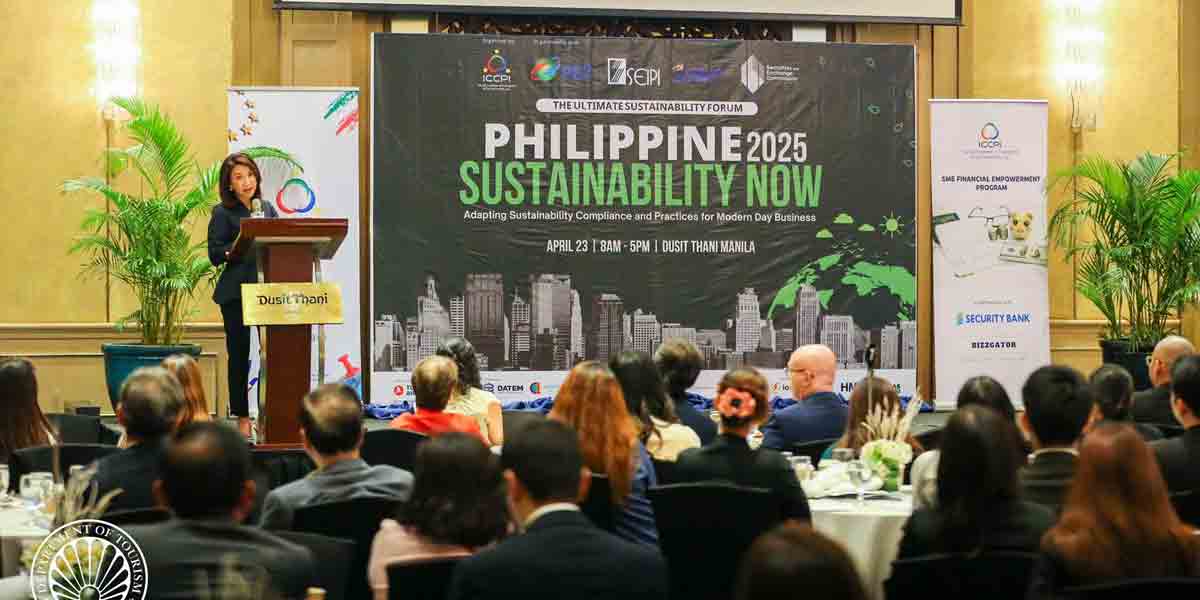By Francis Allan L. Angelo
BUSAN, SOUTH KOREA — Southeast Asian civil society leaders have called for an immediate end to fossil gas expansion plans across the region, warning of irreversible damage to globally significant marine ecosystems, including the Coral Triangle, Verde Island Passage, and Mekong Delta.
Speaking at the 10th Our Ocean Conference (OOC) in Busan, environmental advocates from the Philippines and across Southeast Asia highlighted the threat posed by over 136 gigawatts (GW) of planned fossil gas projects, including power plants and LNG terminals.
“The Coral Triangle is the beating heart of our planet’s marine life, yet it and other crucial marine ecosystems in Southeast Asia are in peril from the expansion of liquified natural gas and other fossil operations,” said Gerry Arances, Executive Director of the Center for Energy, Ecology, and Development (CEED) and Convenor of the Southeast Asia Working Group on Fossil Gas and Just Energy Transition.
Arances warned that offshore oil and gas development already overlaps with about 80 marine protected areas in the Coral Triangle, placing as much as 16% of this biodiversity hotspot at risk if all exploration blocks proceed to production.
“This fossil fuel buildout promises nothing but the destruction of marine life and the pollution of our air and water, jeopardizing the health and livelihoods of our region’s many coastal communities,” he added.
Southeast Asia’s ocean economy, valued at around $1.5 trillion globally, is particularly critical to countries like the Philippines, where oceans underpin national identity, food security, and economic resilience.
A proposed Blue Economy Act in the Philippine Senate underscores this dependence, recognizing the centrality of marine ecosystems to the country’s future.
Despite the fossil fuel push, Arances pointed to Southeast Asia’s untapped renewable energy potential as a viable alternative.
“Southeast Asia currently operates 33.8 GW of renewable energy capacity, with plans to expand nearly 398 GW — an eleven-fold increase, led by countries like Vietnam and the Philippines,” he said.
He emphasized that unlocking this renewable energy future “would not only provide sustainable and reliable energy for Southeast Asians, but also contribute to strengthening climate resilience among our most vulnerable communities and ecosystems.”
Seokhwan Jeong, Lead of Gas Policy at South Korea-based Solution For Our Climate (SFOC), echoed the urgency, particularly calling on his own government to reverse its offshore fossil fuel investments.
“As a G20 nation, South Korea cannot afford to undermine its global standing by continuing to invest in offshore oil, gas, and LNG infrastructure,” Jeong said. “Clinging to offshore fossil development places us on the wrong side of history — and diplomacy.”
The OOC, a key international platform for ocean action since 2014, also marked its 10th anniversary by reporting that it has mobilized $133 billion in funding across more than 2,600 ocean commitments, including $86.8 billion for ocean-climate projects such as offshore wind and blue carbon.
However, a new World Resources Institute (WRI) report released at the conference warned that significantly more ambition is required to meet global ocean targets, including the “30×30” goal to protect 30% of oceans and land by 2030 and the ratification of the High Seas Treaty.
As the conference closed, over $9.1 billion in new pledges were announced by 60 countries and organizations, spanning sustainable fisheries, marine pollution control, and blue economy development.
For Filipino and Southeast Asian advocates, however, the call to action remains clear: fossil gas expansion must end to protect ocean biodiversity and uphold commitments to a sustainable future.
“With the abundance of renewable energy in our region, this fossil fuel buildout is an unnecessary detour in our energy transition — at the cost of the food and livelihoods of millions,” said Arances. “Fisherfolk and civic movements in our countries are putting up a strong fight, and we know that the hope for a livable future and thriving marine ecosystems connects our struggle with communities across oceans.”






















